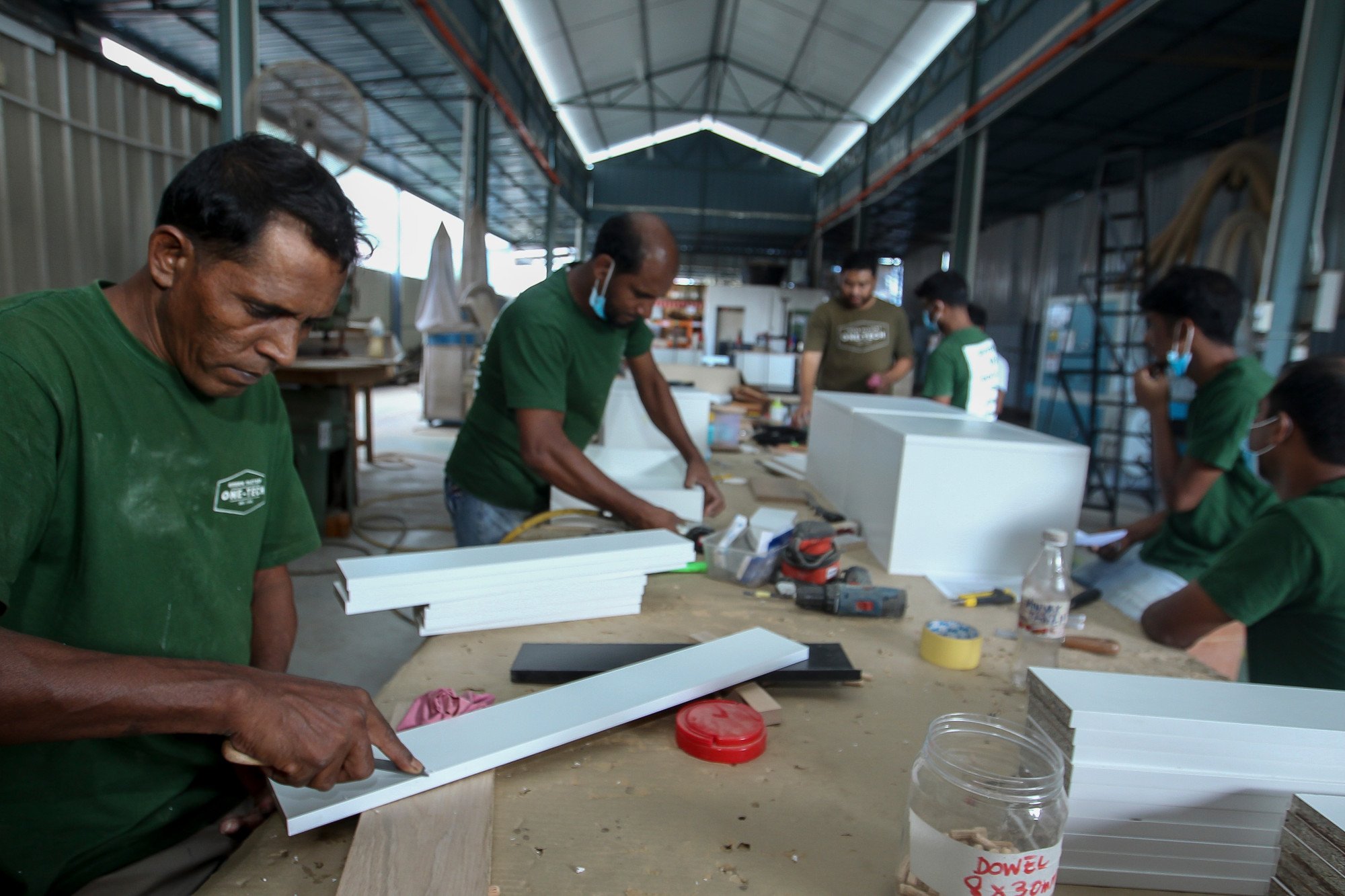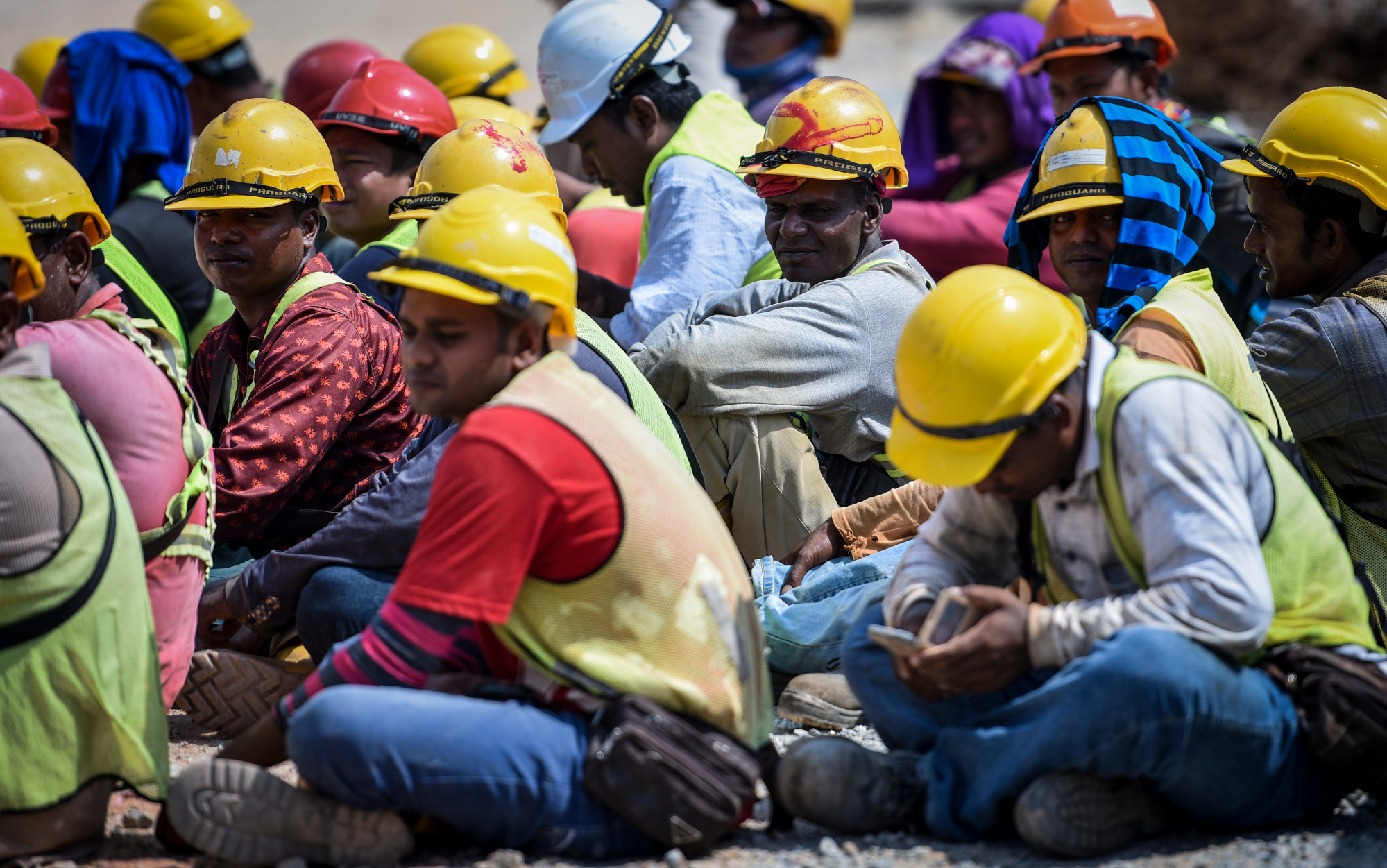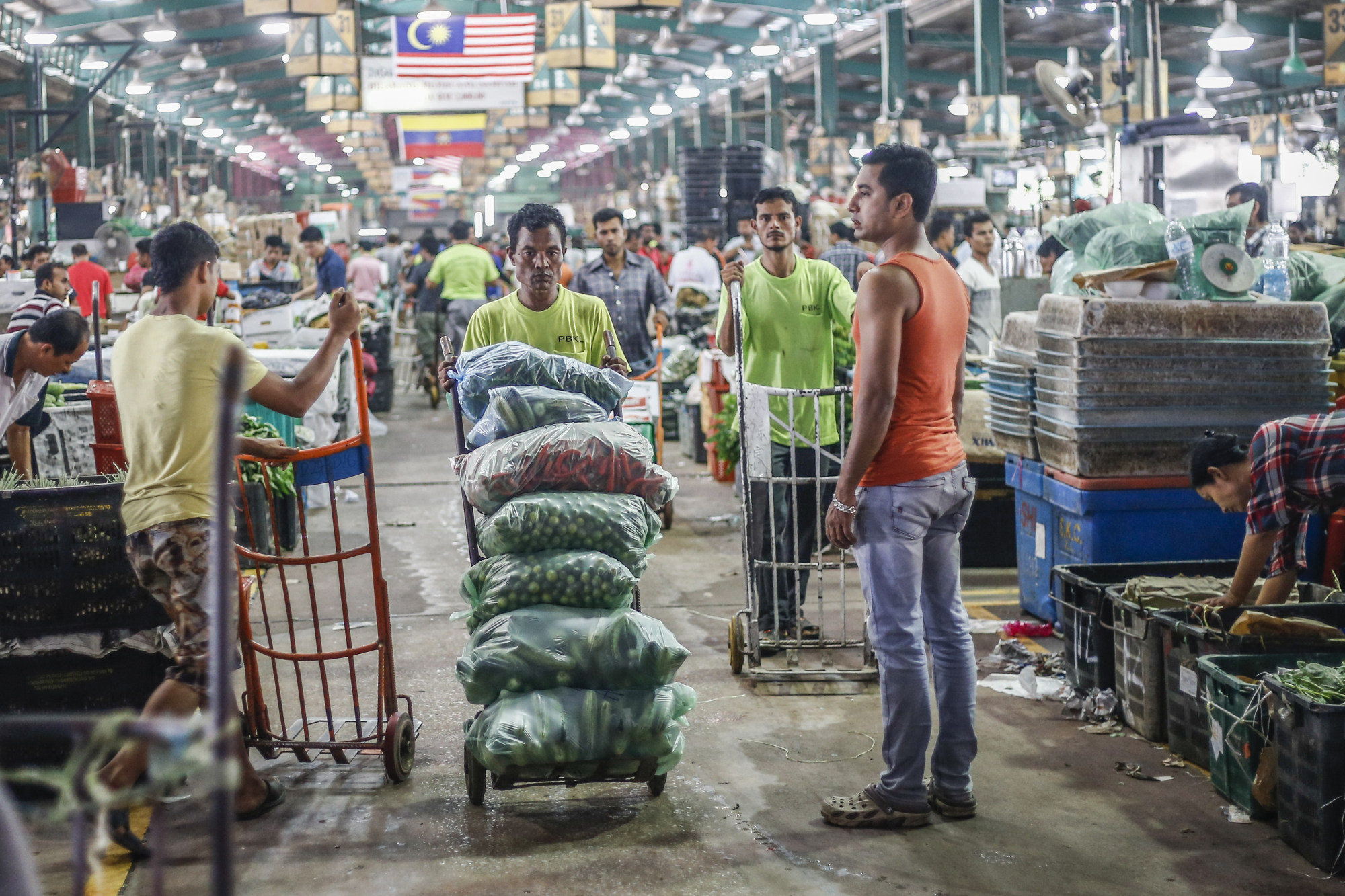
‘Nothing left for me’ as thousands of Bangladeshi workers lose everything in failed bid to work in Malaysia
- Syndicates send thousands of Bangladeshis to Malaysia for fake jobs, labour advocates say, forcing them into illegal overstay as they seek new jobs to pay debts
- Bangladesh’s low-skilled migrant workers remitted nearly US$2 billion in April with Malaysia, the sixth-highest source of remittance
The motorbike courier carrying Saiful’s ticket to the future screeched to a halt outside Dhaka’s Hazrat Shahjalal airport just an hour before his flight to Kuala Lumpur was due to take off.
Clutching his few possessions and necessary documents, Saiful and his family hurried to the departure hall.
“We are immensely relieved … Thanks to Allah, we secured his ticket at the last minute,” Saiful’s father told This Week In Asia, his voice thick with emotion as he embraced his son in a tearful, tight hug.

Saiful’s family paid nearly US$1,000, triple the standard airfare to Malaysia. They hope Saiful will find work in Malaysia’s migrant-labour dependent construction sector, with a promised monthly salary of 1,500 ringgit (US$320) – comparable to an entry-level white-collar job in Bangladesh.
However, in the chaotic days and hours leading up to the deadline, many others who had already paid similar prices to recruitment agencies could not secure a seat. Some were duped into buying counterfeit tickets, or abandoned by agents who had dangled false promises of being fast-tracked to the Malaysian job market.
“I sold everything to pay for this and now the agency has stopped picking up my calls,” said Abdur Rahman, a three-wheeler taxi driver from Bogra in northern Bangladesh, who mortgaged his family land and sold his vehicle, handing over 540,000 taka (US$4,600) to a recruitment agency in Dhaka.
“What will I do? There’s nothing left for me to do here.”

Deadline debacle
To get to Malaysia, Bangladeshis require a migrant worker visa issued by the Malaysian embassy in Dhaka. The government-set cost per worker is nearly 79,000 taka, as determined by an agreement between the two countries in 2021.
Malaysia set the May 31 deadline after the criminal market for Bangladeshi migrants in Malaysia unspooled earlier this year. Well-connected syndicates in both countries sent thousands of Bangladeshis to Malaysia for fake jobs, labour advocates say, forcing them into illegal overstay as they sought new jobs to pay debts and leaving them open to detention by immigration authorities.
Malaysian High Commissioner to Bangladesh, Haznah Md Hashim, told reporters in Dhaka last Wednesday that the syndicates involved in recruiting Bangladeshi workers in Malaysia were “beyond the control of the two governments”.
The UN in April urged Malaysian authorities to protect migrants who had fallen into debt bondage. “We received reports that certain high-level officials in both governments are involved in this business or condoning it,” UN labour analysts said in an April 19 statement. “This is unacceptable and needs to end.”

The labour market for Bangladeshis in Malaysia has frequently been mired in controversy. Over the past 15 years, Malaysia’s labour market for Bangladeshi workers has faced three closures due to corruption and exploitation by alleged labour syndicates.
The rush to beat the deadline began on May 20 as more than four times the number of daily arrivals from Dhaka landed in Kuala Lumpur. Migrant workers say unscrupulous agents and brokers in Bangladesh took advantage of the last-minute rush to raise prices for flights to Malaysia for those who had already spent fortunes to secure visas.
“I got my e-visa and all necessary permits by early May, paying about 540,000 taka … we relied on the agency for ticket bookings,” said Mohammad Farid as he waited for his ticket confirmation at the airport on Friday.
“Last week, I was told to pay an extra 120,000 taka for my ticket, three times the original amount – and learned about the deadline.”
His father sold three cows to raise the funds, yet Farid did not manage to board an aircraft.

The Bangladesh Association of International Recruiting Agencies said it was calculating the exact number of workers who could not travel despite completing the bureaucratic hurdles. But there are reports that up to 17,000 people have been affected.
Recriminations have followed Friday’s chaotic deadline.
“The Malaysian authorities issued visas as late as May 28, just three days before the deadline,” said Ali Haider, secretary general of the recruiting association.
He said checks to root out companies offering scam jobs had also slowed the process on the Bangladesh side.
“Our government has blacklisted certain companies known for scams or exploiting our workers. We screen these entities to prevent our workers from falling into the wrong hands.”
Shakirul Islam, chairperson of a grass-roots organisation for migrant workers’ rights, told This Week in Asia that anyone with completed documents should still be allowed to travel to work.
“The Malaysian government should extend time to allow workers who have been issued visas to enter and work.”
Bangladesh’s low-skilled migrant workers remitted nearly US$2 billion in April, according to data from Bangladesh’s central bank. Malaysia was the sixth-highest source of monthly remittance, with US$132 million that month.

